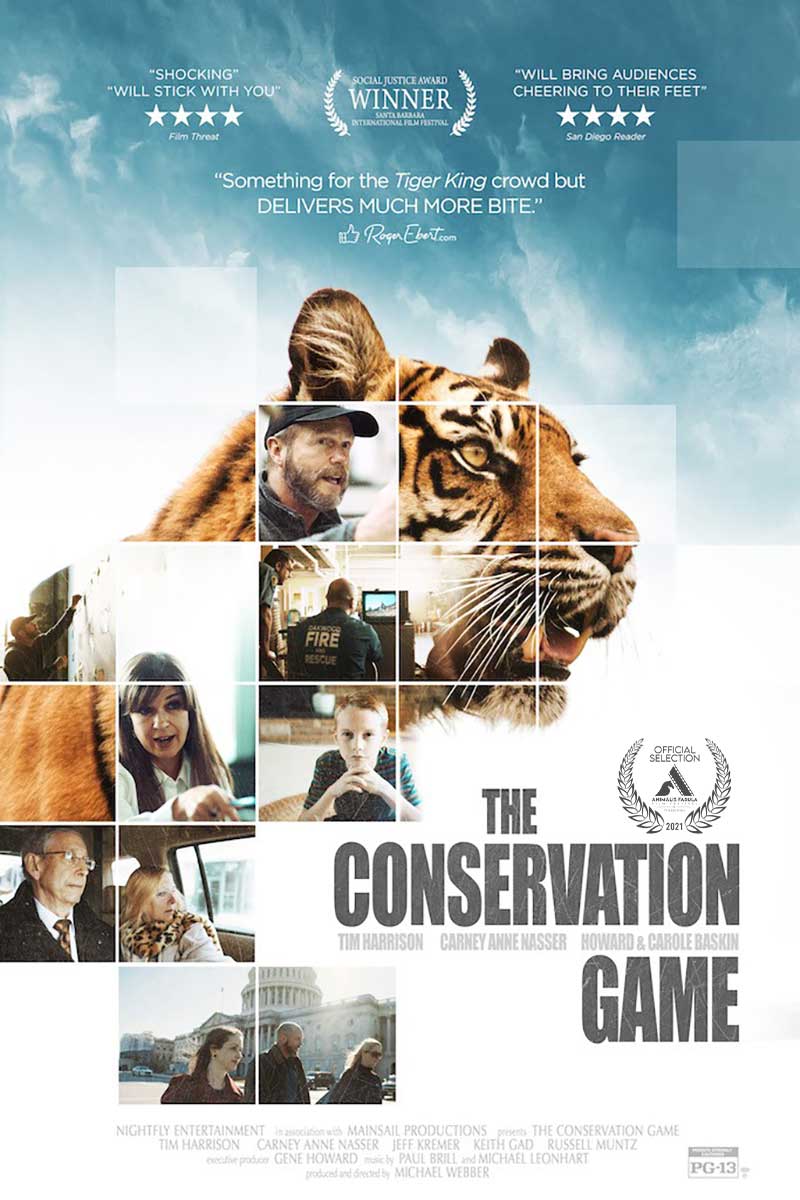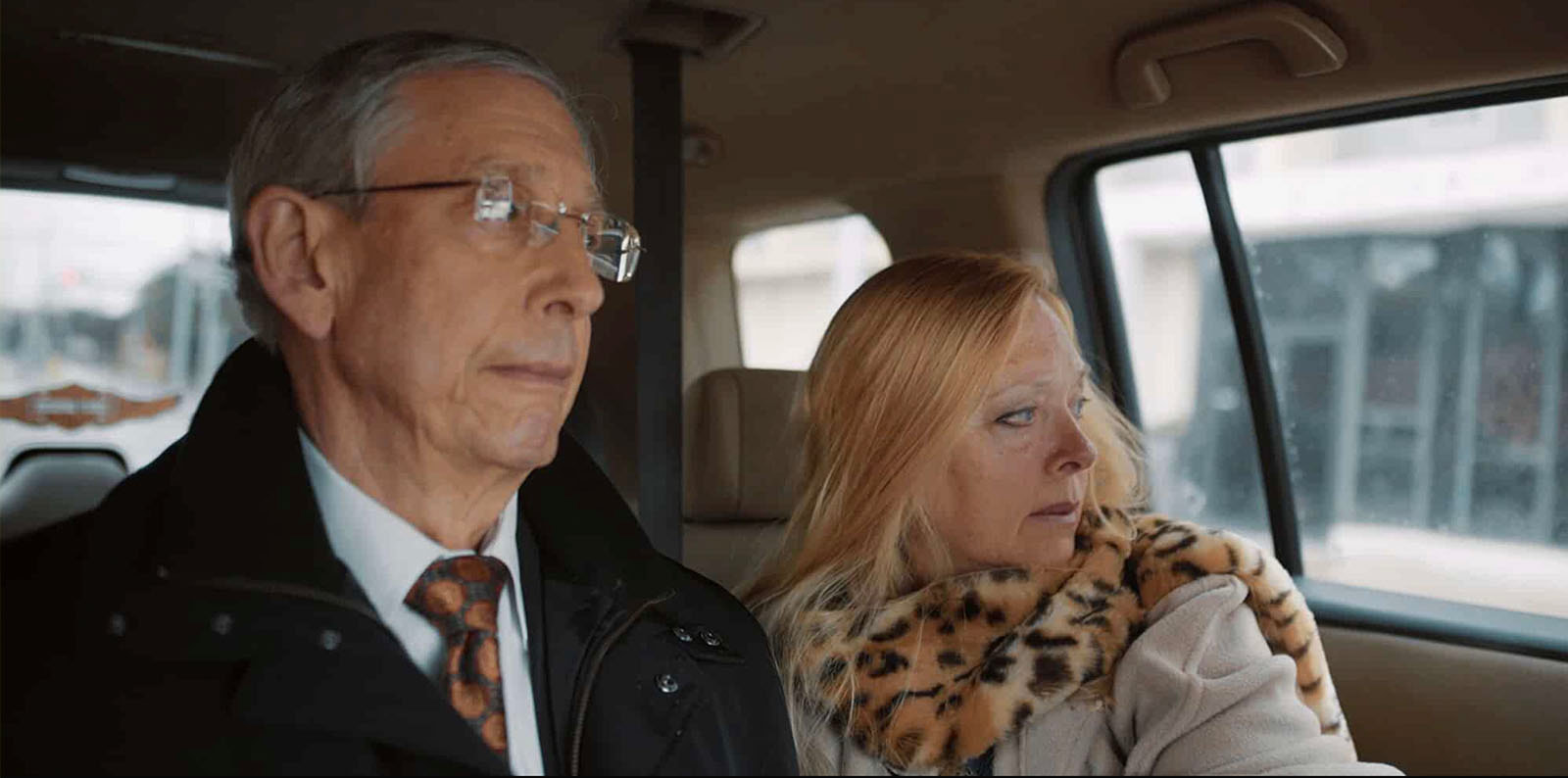|
Filed By:
Gabriel Ponniah, Editor In Chief ATX Screen Scene The Covid-19 Pandemic has irrevocably shifted the way in which we engage with media, whether by accelerating existing trends towards insular binging of streamed content or creating novel release windows for theatrical films. One such instance of the former was exemplified by the Netflix documentary Tiger King, which relied upon wild characters and shock value to saturate a market of viewers cooped up inside, trading the coronavirus for a worsening case of cabin fever. It’s fair to say that most people “like animals,” and content like Tiger King caters to those well-meaning individuals who turn up for big cats on screen, even if they’re ignorant of the difference between environmentally conscious and environmentally exploitative programming. Growing up, Tim Harrison was one such fan of these animal stories, as he explains as the subject of Mike Webber’s documentary feature The Conservation Game. AniFab 2021 showcased a wide breadth of work from different filmmakers of different backgrounds at different stages in their creative journeys, but one project loomed large over the whole ordeal—and for good reason. The Conservation Game is a grown-up, no-nonsense docu-exposé of the highest order, succeeding where Tiger King failed at introducing its viewership to the corrupt and cruel world of the exotic animal trade without forgetting who its real victims are. Webber, an accomplished, veteran filmmaker whose credits extend back some 30 years and reach as far up the distribution food chain as 20th Century Fox and Lionsgate, finds a personal angle to this story in the form of Harrison’s childhood idol Jack Hanna. As he dives headlong into his investigation, he shows the way forward for anyone out there whose love for animals led them to inadvertently support systems which treat those same animals so inhumanely, a group I count myself among. The spirit of investigative journalism on display here sets The Conservation Game apart from its contemporaries. While there’s much to praise with regards to the film’s fleet-footed writing and editing, helping viewers effortlessly navigate dense material without losing engagement, the highest highs spur from its subjects’ driving passion in pursuit of their righteous cause. It’s exhilarating to watch Harrison and company do battle, strategizing in litigation meetings or face-to-face with their adversaries during covert confrontations. There was no shortage of fist-pumping cheers in the theatre when Jeff Kremer, Facebook-tiger-photo-fingerprint-finder extraordinaire, accepted the challenge ahead. The Conservation Game skillfully leverages every available tool at the filmmakers’ disposal in service of their agenda. Webber and company shoot staged reenactments of events to illustrate their process. He guides the audience with recognizable tropes like the familiar pin board and twine. Are these elements manipulative? In short: yes, but this approach is more value-neutral than it may appear on the surface. All films have a perspective—an agenda—and the crime is not in promoting such, but rather in doing so in service of harm, doing so in a confusing manner or with insufficient factual support, or not doing so at all, thereby leaving the audience adrift with no life preserver. Any deception that Webber and his team pull here is good-faith argumentation and advances a demonstrably virtuous cause. What’s more: the film makes clear statements of intent with regards to action steps, improving its potential efficacy tremendously. Aside from the straight facts of the narrative, aside from the fingerprints of capitalism that underpin the greed and corruption here shown, the most salient theme I found in The Conservation Game was the notion of challenging one’s heroes. Harrison undergoes a transformation of sorts in the film, having idolized Jack Hanna as a young man, but now having learned all he’s learned, he has to come to terms with the fact that a hero of his childhood was at-best complicit and at-worst actively profiteering off corruption and inhumanity that runs directly counter to his message of inspiration. There’s plenty of this to go around in environmentalism, and in liberal spaces at-large; if you’re conscious of social issues, odds are you’ve been burned once or twice by a high-profile hero who puts their foot squarely into those issues. It’s a hard thing to divest oneself from a figure who represents such positive inspiration after learning of their dubious underbelly, and there’s an honest conversation to be had about the net effects of doing so. Festivalgoers discussed such with regards to the sainted Irwin family—in hushed tones, so as to not incur their wrath (or their fans’). It’s a dangerous game, accountability. The Big Cat Public Safety Act has passed the House of Representatives, and in a move of authentic activism, Webber and company made The Conservation Game widely available online in the hopes of ginning up support as it heads to the Senate. As of writing, it has not yet received a vote. But that shouldn’t indicate a lack of interest, nor of importance, of the issue. While Tiger King 2 didn’t have the same cultural impact of its predecessor, Kate McKinnon’s role in Joe vs. Carole indicates this issue is very much on the minds of audiences in 2022. They would be well-served to see the substance behind the drama, and I can think of no better way to do that than by seeing The Conservation Game. No excuses now. |
Get tickets for any #AniFab22 screening:ATX Screen Scene
The ArchAngel of Austin Archives
January 2022
|






 RSS Feed
RSS Feed



